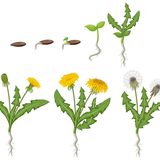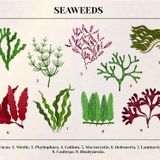Health topic
Diagnosis of cancer

Herbs and spices for the prevention and treatment of colorectal cancer
Colorectal cancer is the second deadliest cancer in the world. Treatment is a serious challenge due to its late detection, high recurrence rate and resistance to multiple drugs. It has been proven that some herbs and spices used for generations in several countries can have a preventive effect against the development of colorectal cancer. Some of them may even be useful as anticancer adjuvant therapy when used in high doses.

Echinacea: Health Benefits, Medicinal Properties and Side Effects
Echinacea is one of the most popular herbs in the world, which has a pronounced immunomodulatory and general strengthening effect. Today, echinacea is best known as an herbal remedy for use in the common cold or flu. In addition, echinacea may be useful for inflammation, migraines and other health problems that we will consider in the article.
The amazing health benefits of ginger (Zingiber officinale)
Ginger is among the healthiest (and tastiest) foods on the planet. It belongs to the family Zingiberaceae and is closely related to turmeric (Curcuma longa), cardamom (Elettaria cardamomum) and galangal (Alpinia Galanga). The rhizome (the underground part of the stem) is the part that is usually used as a spice. It is often called ginger root or simply ginger. There are legends about the benefits of this natural gift and today we will reveal all the great beneficial effects that ginger consumption can provide you in various forms.

The unusual benefits of dandelion root and recipes for preparation
Dandelion, also called Radica (Taraxacum officinale), is that plant that as children we loved to pick and blow in the air. In fact, dandelions are plants that have a number of powerful health benefits, and it is better to use them for this. People have used dandelions in folk medicine for much of recorded history, including in the form of dandelion tea.

8 Amazing Health Benefits of Algae
"Seaweed" is a general term for various marine plants that are a source of food for ocean life and range in multiple colors, from red to green, brown, and even black. They are present in the menu not only of marine life, but also of people, most often consumed in Japan, China and Korea. There are many different species, among which the most famous are red (Rhodophyta), green (Chlorophyta), blue-green and brown (Phaeophyceae) algae. In addition, seaweed is very nutritious and is applicable in a variety of dishes, including sushi, smoothies and many others.

7 Health Benefits of Valerian Root + Recipes
Valerian root also known by its scientific name Valeriana officinalis is an herbal remedy that has roots in ancient Greece. The valerian plant is distinguished by pink or white flowers. It is native to Europe and Asia, but is also found in North America. There are many available forms of this medicinal herb including tinctures, pills, drops, and teas that can be applied to a variety of health problems.
5 Proven Health Benefits of Ashwagandha (Withania somnifera)
Ashwagandha is one of the most important herbs in Ayurveda, which is a traditional form of alternative medicine based on Indian principles of natural healing. People have used ashwagandha for millennia to relieve stress, increase energy levels, and improve concentration.

The Most Dangerous Nutritional Enhancers in Our Diet (Part 2)
The food and chemical industries have claimed for decades that all food enhancers are well tested and safe. And some of them are really safe, while others can cause cancer in animals, as well as other health problems. However, the history of food enhancers is full of controversy and it turns out that after many years of use, they pose a health risk. It may surprise you that some food enhancers are contained in your favorite foods, such as bread, baked goods and sweets, pastries, carbonated drinks. Their negative effects should not be underestimated, so we divided the topic into two parts and this is the continuation.

Possible Cryotherapy Benefits for Improved Health
You've probably come across pictures of people lying in bathtubs full of ice or standing in cold tanks at freezing temperatures. This procedure, gaining popularity in recent years, is called cryotherapy.

A Guide to Different Types of Vinegars - How To Use Them
Vinegar is most likely present in your kitchen along with olive oil, salt, pepper and other basic cooking tools. Both beginners and experienced chefs use vinegar to make sauces, marinades, dressings and various marinades. But if you walk along the vinegar stands in the grocery store, you will see that there are different varieties — balsamic vinegar, white wine vinegar, apple, rice and more. For novice cooks, it can be especially confusing to choose vinegar, and it's always helpful to know how to use this ubiquitous kitchen attribute.